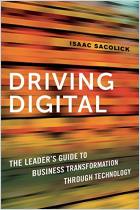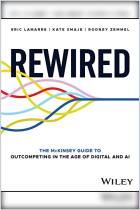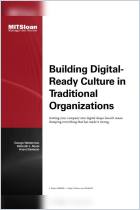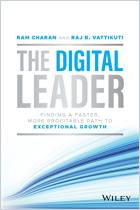Traditional brick-and-mortar firms often struggle on their paths to digital transformation. In this brief playbook, the authors outline the paths of dozens of traditional brick-and-mortar firms as they systematically built integrated, enterprise-wide IT infrastructures, followed by digital offerings – guided by customer insights. Not unlike digital natives Amazon and Google, these firms have expanded revenues and even designed platforms that partners can use to write apps or conduct business.
Most traditional firms must embrace a process of digital redesign to survive in today’s fast-changing economy.
Most traditional businesses can’t do business digitally yet. For these companies, digital transformation can feel overwhelming – especially because legacy lines of business and products require full-time attention too. However, future success hinges on redesigning for digital delivery. Digital redesign means incorporating some or all of the five main elements of the digital economy into your business: social, mobile, analytics, cloud and the Internet of Things (IOT) – SMACIT. Robotics, AI, cryptocurrencies, and other fast-changing and newly emerging digital technologies loom as well.
Digital transformation doesn’t require top-to-bottom restructuring nor wholesale cultural change. It means gradually pursuing a new direction and slowly changing people’s habits. For instance, Philips, a health care technology manufacturer, began harnessing the data its MRIs, monitors and other tools produced. The company then leveraged that data into products or product enhancements for patients and health care workers, such as apps for expectant parents and AI to help radiologists...
Jeanne W. Ross is a principal research scientist at the MIT Sloan Center for Information Systems Research. Cynthia M. Beath is a professor emerita of information systems at the McCombs School of Business at UT Austin. Martin Mocker is professor at ESB Business School at Reutlingen University, Germany, and research affiliate at the MIT Sloan Center for Information Systems Research.






















Comment on this summary or 开始讨论